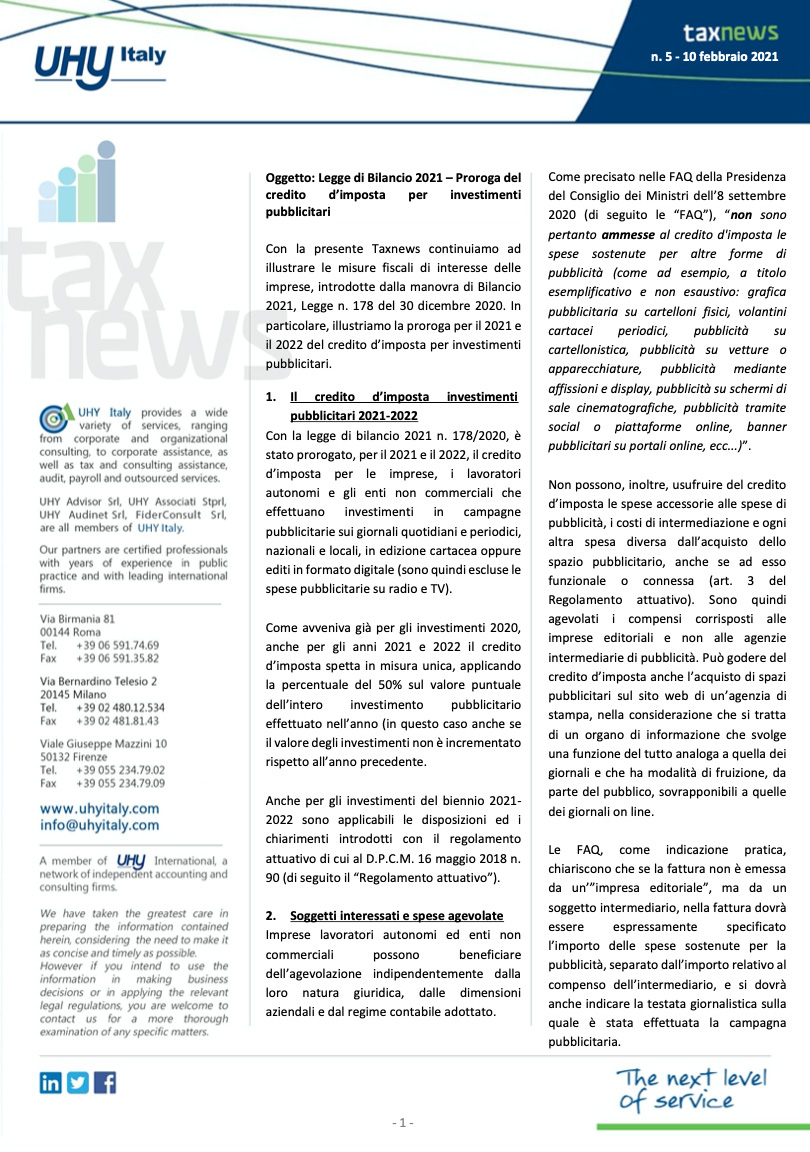

Cristiano Fasanari - 24/02/2025
Tax News 5/2025 del 24.02.2025
Transfer Pricing Adjustment and VAT: the clarifications by the Tax Office
This taxnews analyzes the recent Response no. 266 of December 18, 2024 issued by the Tax Office which clarified the relevance for VAT purposes of price adjustments made in transactions subject to the so-called “transfer pricing” discipline.
With Response no. 266 of December 18, 2024, the Tax Office has once again commented on the relevance of transfer pricing adjustments for VAT purposes (TP adjustments) applied within multinational groups for transactions between related companies.
The case concerned a company, Alpha, with legal offices in another EU member state but registered in Italy for VAT, which was selling goods to its U.S. subsidiary, Beta. Specifically, according to the group policy on transfer pricing, Alpha:
- at the time of sale: issued an initial invoice for 5% of the total price;
- the remaining 95%: was invoiced subsequently as a TP adjustment to ensure compliance with the arm’s length principle.
According to Alpha, only the initial invoice issued should be considered relevant for VAT purposes, while subsequent invoices should be excluded from VAT, having the sole purpose of adjusting the subsidiary’s margin.
In reviewing the case, the Tax Office first reminded the distinction between the purposes of transfer pricing and of VAT, highlighting that:
- transfer pricing aims at correctly allocating profits among the subsidiaries of a multinational group;
- VAT, on the other hand, is based on the agreed price between the parties and only in exceptional cases is the normal value of the transaction considered.
Therefore, according to the expressed approach, TP adjustments may influence the VAT taxable amount when:
- they are made against payment;
- they refer to specific sales of goods or provision of services relevant for VAT purposes;
- there is a direct link between the adjustment and the initial agreed price for the sale of goods or the provision for services.
Consistent with the above, in this specific case, the Tax Administration confirmed the VAT relevance also of invoices issued after the sale for two reasons:
- the contract between Alpha and Beta explicitly required adjusting the price to comply with the arm’s length principle;
- the clear disproportion between the initially invoiced value (5%) and the subsequent adjustment (95%) confirmed a substantial change in the agreed price.
The Tax Office’s interpretation confirms an established approach, i.e. that transfer pricing adjustments can have VAT relevance if they modify the originally agreed price (previous ruling on this issue incude: Response no. 529/2021; Response no. 60/2018 and no. 884/2021). In this analysis, a key element is the role of contracts between the parties: they determine if the adjustments should be considered as a modification of the original price (relevant for VAT) or a simple reallocation of margins (irrelevant for VAT).
